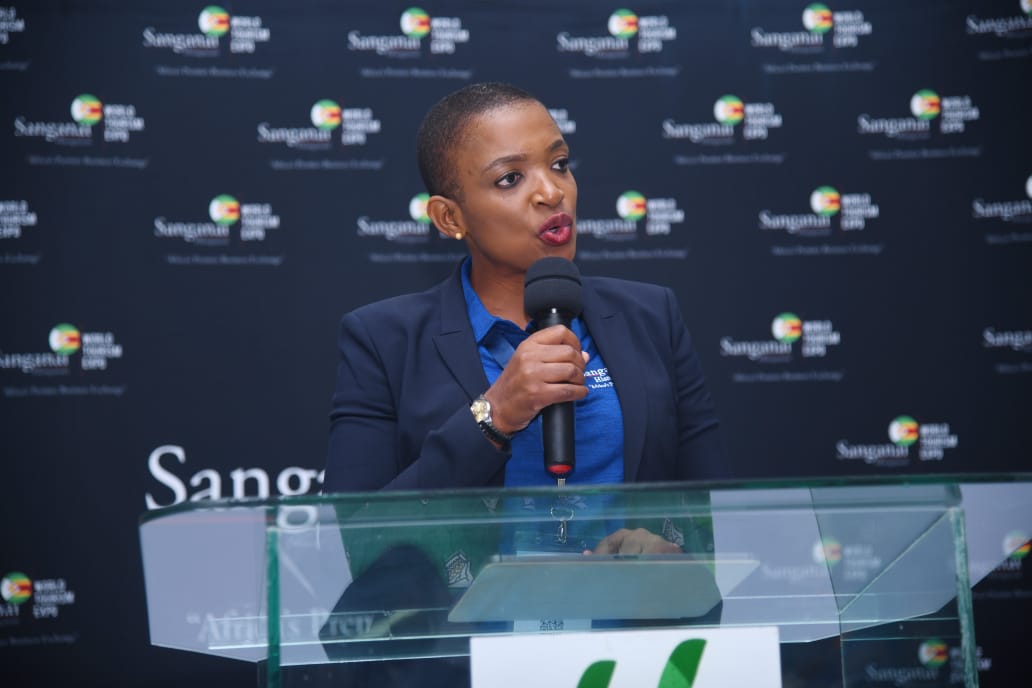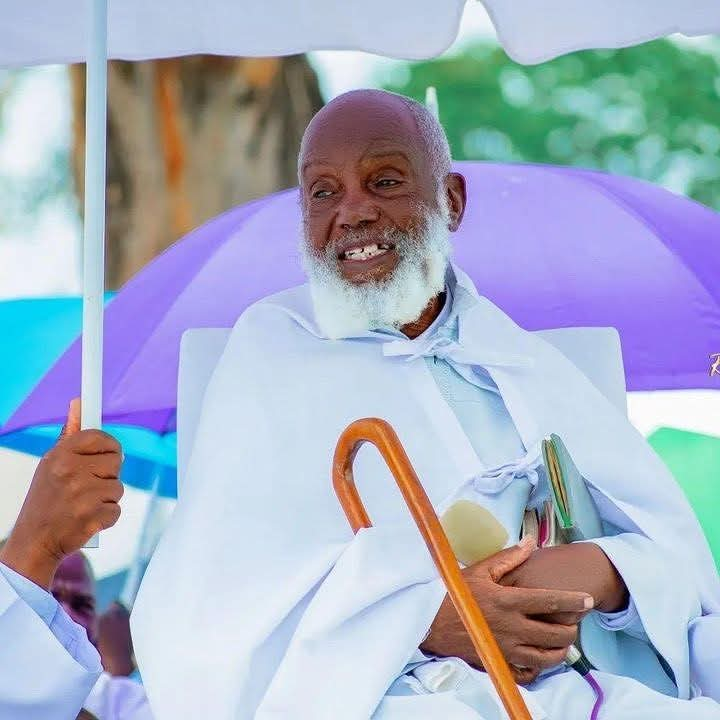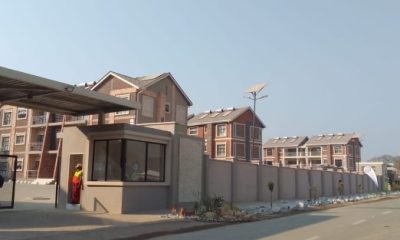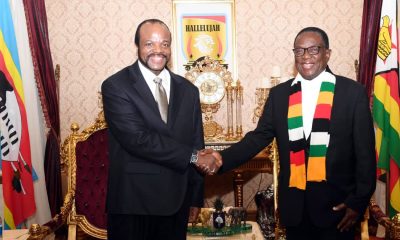Current Affairs
Mnangagwa Urges Japanese Investors to Tap Into Zimbabwe’s Economic Potential

President Emmerson Mnangagwa has called on international investors—particularly those from Japan—to take advantage of the vast economic opportunities in Zimbabwe. Speaking at the official Zimbabwe National Day event at Expo 2025 in Osaka, Japan, the President described Zimbabwe as a land of “unmatched possibilities,” and emphasized that the nation is open for investment, trade, tourism, and innovation.
Highlighting the country’s promising sectors—including mining, agriculture, energy, infrastructure, manufacturing, ICT, and tourism—Mnangagwa said Zimbabwe is undergoing a transformation towards becoming a modern and industrialised economy within the next five years.

“We are inviting our friends from Japan and around the world to work with us in shaping a future of shared prosperity,” said President Mnangagwa. “Zimbabwe welcomes investment, partnerships, trade, innovation, and tourism that go beyond limits.”
He noted that the country’s economic growth, expected to reach 6% this year, is being driven by structural reforms, infrastructure development, and increased focus on processing raw materials locally, especially in mining and agriculture.
“Our national development strategy is forward-looking and centred on the needs of our people,” he added. “The policy reforms we’ve undertaken have positioned Zimbabwe among the fastest-growing economies in Southern Africa.”
Mnangagwa identified infrastructure rehabilitation, particularly transport networks, energy, ICT, and water systems, as areas with immense potential for foreign investment. He noted that Japanese expertise and experience could play a vital role in these areas.

The President also spotlighted Zimbabwe’s mining sector as a key investment draw, with rich deposits of precious metals, stones, hydrocarbons, and other industrial minerals. He stressed the government’s push for value addition and beneficiation as part of a broader industrialisation drive.
During the Expo, Zimbabwe signed a Memorandum of Understanding with Japanese firms in the motor industry—a deal Mnangagwa said could significantly boost the country’s public transport system and create regional economic benefits.
“Japan’s strength in innovation, science, and technology aligns well with Zimbabwe’s goals,” he said. “We are eager to partner with Japanese investors to fast-track our industrial and technological advancement.”
He also emphasized agriculture as a major sector for partnership, particularly in climate-resilient farming, irrigation, and mechanisation. The President commended Japan’s support for projects like the Nyakomba Irrigation Scheme, which has strengthened food security and rural livelihoods.
“We’re constructing more dams and need investment in irrigation infrastructure and agricultural machinery,” said Mnangagwa. “Such developments will help us expand the land under irrigation and improve productivity.”
Turning to tourism, the President promoted Zimbabwe’s world-renowned attractions such as Victoria Falls and its abundant wildlife. He expressed optimism that post-Expo engagements would help boost Japanese tourist arrivals.
“Victoria Falls—also known as Mosi oa Tunya, or ‘The smoke that thunders’—is one of the Seven Natural Wonders of the World,” he said. “Zimbabwe is home to vast wildlife diversity and expansive national parks that cover about 70% of the country’s land.”
He pointed out that Zimbabwe has the world’s second-largest elephant population and a growing rhino population, making the country a premier destination for safari tourism.
On the sidelines of the Expo, Zimbabwe hosted its first-ever Zimbabwe–Japan Business Forum, which the President described as a meaningful platform for business leaders from both nations to explore mutually beneficial partnerships.
He also advocated for deeper collaboration in education and innovation, particularly in fields like artificial intelligence, fintech, robotics, and data science. With over 60% of Zimbabwe’s population under 30, he said the country is poised to benefit greatly from investments in human capital.
President Mnangagwa was joined by several senior officials, including Foreign Affairs and International Trade Minister Professor Amon Murwira and Chief Secretary to the President and Cabinet Dr Martin Rushwaya. Japanese government representatives were also in attendance.
Expo 2025, which runs until October 13, has drawn participation from 158 countries and seven international organizations. Zimbabwe’s pavilion has been among the most popular, offering immersive experiences that showcase the country’s investment prospects and technological vision.
Current Affairs
Minister Rwodzi Charts Path as Sector Takes Lead in GDP Growth

Itai Mazire
Tourism and Hospitality Industry Minister Barbara Rwodzi has implored players in the sector to embrace innovation, sustainability, and stronger partnerships to safeguard Zimbabwe’s tourism gains, as the industry now leads national GDP growth ahead of mining and agriculture.
In a speech delivered on her behalf by Tourism Permanent Secretary Dr. Takaruza Munyanyiwa at the Hospitality Association of Zimbabwe (HAZ) Summit and Annual General Meeting in Harare today, Minister Rwodzi said the country stood at a “historic crossroads” following its recent listing by Forbes as the best destination to visit in 2025.
“This is a well-deserved accolade which we should celebrate and sustain going forward. Congratulations, makorokoto, amhlope to the service providers of the tourism and hospitality industry of Zimbabwe.”
The Minister applauded the sector’s resilience in the face of pandemics, economic headwinds, and climate-related shocks, noting that the spirit of Zimbabwean hospitality remains unbroken.
“We have continued to smile, to serve, and to tell our authentic story, hence reaping the rewards now,” she said.
Giving an update on performance, Minister Rwodzi reported that international tourist arrivals grew by 9 percent between January and September 2025 compared to the same period last year, with strong traffic from the Americas, Africa, and Asia.
Domestic travel also surged by 20.9 percent over the same period, while the sector generated approximately USD 922 million in 2025 a 10 percent rise from the USD 839 million recorded last year.
“These are encouraging signs that our recovery is gaining positive traction. But future-proofing requires more than recovery it demands transformation,” she said.
Minister Rwodzi outlined five pillars she said would anchor the transformation of the sector: digitalisation; sustainable and climate-resilient tourism; human capital development; infrastructure and connectivity; and stronger branding and market diversification.
“The future of hospitality is digital,” she said. “We must move from brochures to big data, from paper-based booking to smart platforms.”
She urged operators to embrace online booking systems, virtual reality tourism aids, and other digital tools that enhance visitor experiences.
On sustainability, Minister Rwodzi said protecting Zimbabwe’s natural and cultural heritage was “not an expense it is an investment in the longevity of our industry.”
The Minister stressed the need to invest in human capital, calling on operators to work closely with academia to bridge skills gaps and develop tomorrow’s hospitality innovators. She highlighted the First Lady, Dr. Auxillia Mnangagwa’s gastronomy vision as a key avenue for elevating Zimbabwe’s culinary offerings.
On infrastructural development across the country, she said it remained central to competitiveness: “A tourist’s journey begins long before they reach our front desk — it begins on a road, a runway, or a mobile network.”
Minister Rwodzi reiterated that Government is committed to creating an enabling environment, pointing to the recent reduction of tourism fees by up to 50 percent to lower operating costs.
“Future-proofing cannot be achieved by Government alone,” she said. “The private sector is the engine of creativity, investment, and service excellence.”
Her call for collaboration was anchored on an African proverb which states that, “Tomorrow belongs to the people who prepare for it today.”
The Minister said the role of HAZ remained critical as Zimbabwe eyes increased international tourist inflows.
“The world’s eyes are turning towards Zimbabwe. We have the assets, we have the people, we have the passion so why not?” she said.
“To HAZ, your role has never been more critical. You are the unified voice of the hospitality industry. Your strength lies in your collective action.”
She said the ongoing summit provided a platform to “strategise, innovate, and build consensus” as the sector pushes towards Vision 2030.
“The potential is vast. The time is now. Let us build not just an industry, but a legacy,” said Minister Rwodzi.
Current Affairs
Apostolic Church Founder Paul Mwazha Dies at 107

Zimbabwe and the wider African Christian community are mourning the loss of Bishop Paul Mwazha, the revered founder of the Apostolic Church in Africa, who passed away today at the remarkable age of 107.
Bishop Mwazha, widely regarded as one of the continent’s most influential religious leaders, dedicated his life to the growth and spiritual guidance of his church, which boasts millions of followers across Zimbabwe and beyond. His teachings, rooted in faith, discipline, and community service, have left an enduring legacy that continues to shape generations.
The Apostolic Church in Africa under his leadership became a cornerstone of spiritual life in many communities, providing not only religious guidance but also social support and education initiatives. Church leaders have called for prayers as they prepare for national and regional mourning rituals.
Further details on funeral arrangements and memorial services are expected to be released in the coming days.
Business
Zimbabwe Bets Big on Biotech to Fuel Industrial Revolution


Dr. Eng. Willie Ganda
By Enia Dube
The Minister of Higher and Tertiary Education, Innovation, Science and Technology Development, Hon. Dr Fredrick Shava, has thrown his weight behind biotechnology as a key driver of the country’s industrialisation and modernisation agenda.
Speaking at the National Biotechnology Authority (NBA) Strategic Planning Workshop in Kadoma, Dr Shava urged the Authority to identify biotechnology-led opportunities that can boost national production and accelerate economic growth.
“Biotechnology serves as a key catalyst for NDS2 implementation, advancing inclusive economic growth, job creation, and sustainable industrial development,” Dr Shava said, emphasising the need to integrate biotechnology into national value chains to unlock a biotechnology-driven economy. He added that this would turn innovation into industry, knowledge into enterprise, and science into jobs.
The NBA has made notable progress in establishing a strong regulatory framework, promoting biotechnology research and commercialisation, and raising public awareness about the sector’s potential. The Authority has successfully commercialised products such as Mapfura wine and Cofsol cough syrup, and has several other biotechnology products in the pipeline.
Incoming NBA Board Chairperson, Professor Idah Sithole-Niang, echoed Dr Shava’s sentiments, emphasising that the Authority’s five-year strategic plan must meaningfully contribute to the attainment of Vision 2030. “This event marks a significant milestone in the Authority’s ongoing efforts to enhance the role of biotechnology in Zimbabwe’s socio-economic development,” she said.
The workshop aimed to realign priorities and resources in response to emerging technologies and global biotechnology trends, and develop a strategic roadmap to strengthen biotechnology as a key driver of Zimbabwe’s socio-economic transformation. The rapidly evolving global biotechnology landscape, including advancements in gene editing, bio-manufacturing, and climate-smart innovations, presents both new opportunities and challenges for Zimbabwe.
“We recognise the pressing need for an inclusive and forward-looking strategic plan that can navigate the complexities of the biotechnology landscape,” Professor Sithole-Niang noted. The workshop was attended by researchers, government officials, and NBA staff, who are optimistic about the potential of biotechnology to drive Zimbabwe’s economic transformation and achieve Vision 2030.
-

 Current Affairs1 week ago
Current Affairs1 week agoOperation restore order
-

 Crime and Courts2 months ago
Crime and Courts2 months agoMasasi High School Abuse Scandal Sparks Public Outcry
-

 Crime and Courts2 months ago
Crime and Courts2 months agoKuwadzana Man Jailed for Reckless Driving and Driving Without a Licence
-

 Current Affairs3 months ago
Current Affairs3 months agoMunhumutapa Day: Zimbabwe’s Newest Public Holiday Set for Annual Observance
-

 Current Affairs4 months ago
Current Affairs4 months agoBreaking: ZIMSEC June 2025 Exam Results Now Available Online
-

 Current Affairs1 month ago
Current Affairs1 month agoBREAKING NEWS: ZANU PF Director General Ezekiel Zabanyana Fired
-

 Current Affairs3 months ago
Current Affairs3 months agoGovernment Bans Tinted Car Windows in Nationwide Crime Crackdown
-

 Current Affairs2 months ago
Current Affairs2 months agoExposed: Harare GynecologistChirume Accused of Negligence, Extortion, and Abuse















